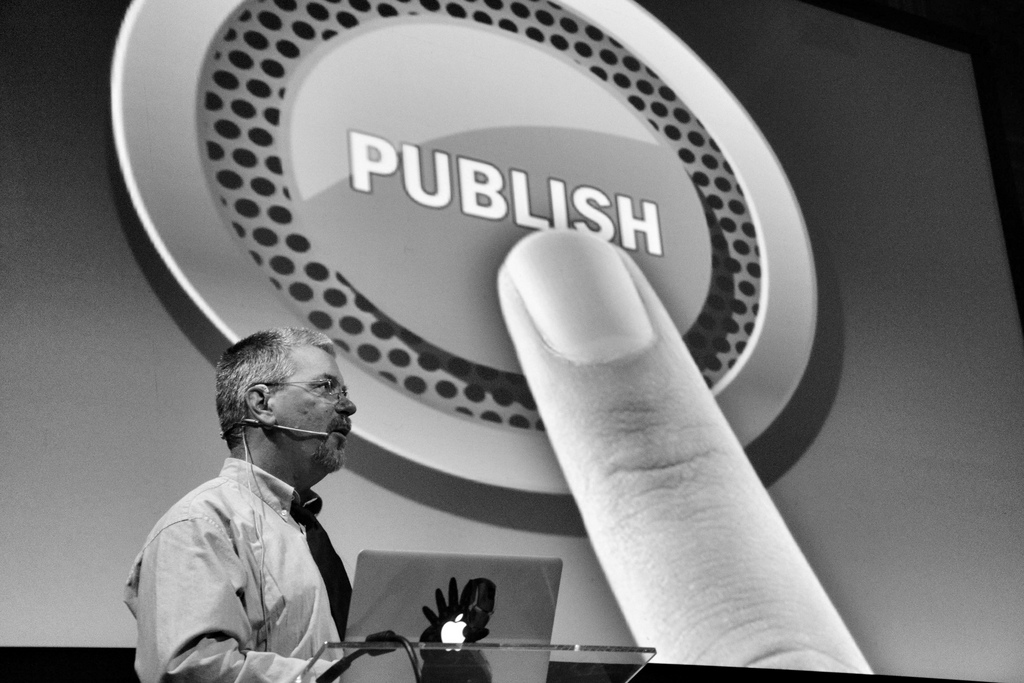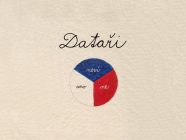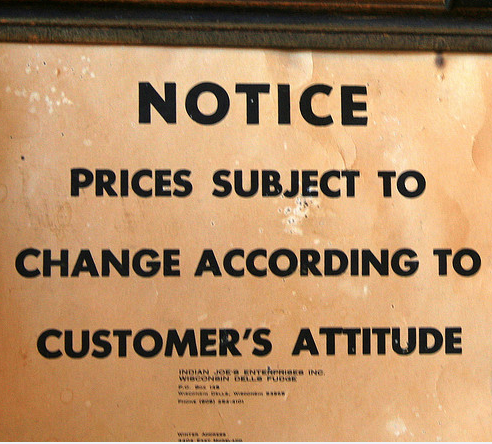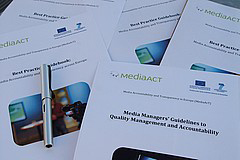“Teaching the fish how to walk: five things old media can learn from new media” is the title of the keynote speech given by Mathew Ingram, Canadian technology writer and the keynote speaker at the International Festival of Journalism held in Perugia on 26th April (for the full video click here).
Ingram sets out five key points through which he tells the story of our days and illustrates what the media, journalists and, above all, editors must and can do to maintain their readership. They are summed up as: 1) Be open. Practice collaborative, transparent journalism. 2) Give credit. Always refer to and credit sources. 3) Be human. Close the gap between reporter and reader .4)Accept news is a process, not a product.5) Be focused. Be more direct in guiding readers.
The European Journalism Observatory caught up with Ingram in Perugia after his talk.
Mathew, in your speech this morning you spoke about 5 main principles that should characterize on-line information. You say that one of these is “being human”: can you explain what you mean by this?
“I think that journalists have to reclaim their humanity and by this I mean several things. For example, one of these is that when they make a mistake they can admit to the fact that they are not perfect or one hundred percent precise at all times. Another implication is not to expect to be objective all the time. Jay Rosen spoke about what he has called “the view from nowhere”, the idea that journalists must always be scrupulously objective.”
(Rosen takes this definition from the title of a book by the philosopher Thomas Nagel published in 1989 which theorizes the need to transcend our particular viewpoints, imagining instead that we are in an objective place without personal viewpoints, that we are in “nowhere”).
“I think that in many cases journalists offer their readers a better service when they say “this is what I think, my point of view”. So, when they make a mistake they should be able to say “this is what I thought but some of the things I said are wrong (or right) but this is why I said them”. When a journalist relates to readers in a human way, a personal relationship is forged and this is a powerful bond and, in any case, what journalism should be.”
And this should be one of the main aspects of “open journalism” as you said this morning. But how can open journalism thrive in a situation where more and more editors are putting a paywall in place?
“Well, that’s a tough question. I had a long chat with Alan Rusbridger from The Guardian recently about his view of open journalism and his opinion is that there is a sort of tension/opposition between wanting to open up the newspaper to readers, asking them to contribute to its journalism, and having a paywall that prevents all this. You can try to reach the highest possible number of people willing to pay but this number will clearly always be smaller than the number that a free newspaper will attract. Therefore, if you want as large a readership as possible for your journalism and the highest level of involvement of your public then the best way is to be completely open without any type of payment like the BBC or the National Public Radio (public companies). But it is difficult for a for profit organization to involve its readers without having some sort of income… there is no hard and fast answer.”
One of the main problems that editors have been faced with in the transition from print to digital is that of not understanding or exploiting its potential. Are they ready and more flexible now? The idea of a paywall as a cure-all would be like taking a step backwards…
“I believe that there is more interest now in the digital media and this is because the business of the editors is in crisis, they are losing readers and income because the advertising market has disintegrated in the Internet era. Many companies are exploring new possibilities because otherwise they would close down: they have to reach new readers and convince them to support them in some way and find new sources through advertising. I like to think that the choice of many companies is not just that of hiding behind a paywall but that this can be part of a wider-ranging strategy: it is not enough to set up a paywall and then go back to working like we did before. While this may work for the New York Times, it doesn’t mean it will work for all. For this reason it is important to understand what else needs to be done: a paywall can add revenue but it cannot increase the number of readers as, instead, is necessary. Editors therefore have to become more creative in order to reach this goal.”
Answering your questions at Paidcontent live, Alan Rusbridger said that it was pointless to make readers pay when the information was freely available on BBC News, AOL or SkyNews…
“I believe that news providers such as the BBC, NPR and many others will always offer free access and so anyone who decides to provide news against payment will have to compete with these, offering better content. I think that this is the reason why The Guardian, The Daily Mail and others have decided not to make their readers pay: companies like the BBC are huge and have thousands of journalists with whom it is difficult to compete. Whoever decides to introduce a paywall must be certain that they can offer really unique content in order to win over large numbers of readers willing to pay even although there is free news available”.
Native advertising seems to be a possible important source of income for editors. What problems, including ethical ones, could this entail for journalism?
“I think that for native advertising to work effectively or to be ethically correct there must be full transparency when proposing it. It is a question that involves the readers’ and public’s trust in your newspaper. If you try to pass off advertising as editorial content the readers will see this and they will lose their trust in the newspaper. Readers want to know what is advertising and what is content. And this is more than a question of ethics, it is a problem that regards the relationship between the editor and the reader. If readers lose their faith they will not come back, whether the content is free or not. For this reason, as I said, it is important to be clear and transparent about what is advertising and what is not. I believe there is a huge potential in informative content that can come from advertising and when this is useful for the readers there is no harm in it as long as it is clearly indicated when the content is provided or sponsored by a company.”
How do you see the development of European media: are they changing with the times or are they lagging behind?
“To tell you the truth, I haven’t really studied the situation in Europe but my impression is that they are lagging behind. Let me explain why. Not long ago, some people said that in Germany all the newspapers were doing well but things are different now. I think that in many countries like Germany, because of the language barrier, there has been an isolation, a bulwark against the global market and there were also fewer newspapers compared, for example, to the United States where newspapers have to compete with any source in the English language from any part of the world. From a certain point of view, language barriers have protected them in the short-term from this competition but the long-term situation is different. Now that competition is impacting newspapers in all countries of the world, those that didn’t start changing five years ago are in trouble, they are behind time”.

Mathew Ingram at the Perugia International Journalism Festival
Article translated from the original Italian ‘Insegnare al pesce come camminare’ by Anne Jamieson.
Photo courtesy of Alessio Jacona
Tags: Innovation in Journalism, Jay Rosen, Mathew Ingram, Open Data, Paywalls, Perugia Journalism Festival













































